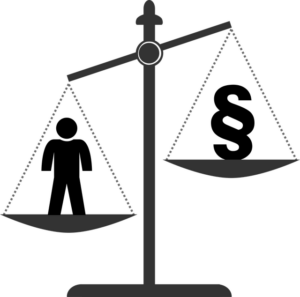Non-disclosure agreements (NDAs) are a crucial element in technology licensing agreements, allowing companies to safeguard their intellectual property rights. An NDA is a legal contract that prohibits the recipient of confidential information from disclosing or using it without the owner’s consent.
NDAs are used to protect trade secrets, proprietary information, and other sensitive data that companies rely on to maintain a competitive advantage in the market. However, breaches of NDAs can have severe consequences for both parties involved, ultimately leading to legal disputes and financial losses.
This article will explore the importance of NDAs in technology licensing agreements and the risks associated with NDA breaches. We will discuss steps that companies can take to protect their intellectual property, legal remedies available to companies in the event of a breach, and the consequences for the breaching party.
Additionally, we will provide best practices for NDA management and analyze case studies of NDA breaches in the technology industry. Ultimately, the goal of this article is to provide a comprehensive understanding of NDA breaches and how companies can take proactive measures to safeguard their intellectual property rights.
Key Takeaways
- Non-disclosure agreements (NDAs) are crucial in technology licensing agreements to safeguard intellectual property rights and protect trade secrets, proprietary information, and other sensitive data.
- Companies invest significant resources in research and development to create new technologies that give them a competitive edge, and loss of trade secrets can result in a loss of revenue, market share, and damage to a company’s reputation.
- Legal remedies for breach of NDA include injunctions and monetary damages, and breaches of non-disclosure agreements can result in financial penalties and legal action.
- Establishing clear policies and procedures for protecting intellectual property rights, implementing confidentiality agreements and NDAs, providing training and education, and having a system in place for handling and storing confidential information securely are all important measures to take to safeguard intellectual property rights.
Importance of Non-Disclosure Agreements in Technology Licensing
The significance of Non-Disclosure Agreements (NDAs) in technology licensing lies in their ability to safeguard the proprietary information of the licensor and prevent unauthorized disclosure to third parties.
NDAs are commonly used in technology licensing agreements to protect the intellectual property rights of the parties involved.
These agreements restrict the use of confidential information such as trade secrets, technical know-how, and customer information, among others.
Technology licensing involves sharing intellectual property rights with another entity, which can be a valuable asset for both parties.
However, it also entails the risk of losing control over confidential information, which can be devastating for the licensor.
NDAs help ensure that the confidential information shared during the technology licensing process remains protected and is not used for any other purpose than what is agreed upon in the licensing agreement.
This helps prevent unauthorized disclosure, misuse, or exploitation of confidential information, and ultimately protects the intellectual property rights of the licensor.
Understanding the Risks of NDA Breaches
The risks of non-disclosure agreement (NDA) breaches in technology licensing are significant and can result in various negative consequences for the parties involved.
One such consequence is the loss of trade secrets, which can have severe financial implications for the owner of the intellectual property.
Additionally, NDA breaches can lead to reputational damage for the parties involved, which can be difficult to repair and can impact future business opportunities.
Finally, financial loss may result from NDA breaches, with potential damages awarded to the party whose intellectual property was compromised.
Loss of Trade Secrets
To fully understand the ramifications of a breach of non-disclosure agreement in technology licensing, it is crucial to analyze the potential loss of trade secrets and the impact it may have on the intellectual property rights of the parties involved.
Trade secrets are crucial to the success of a company, as they provide a competitive edge that cannot be easily replicated by competitors. Trade secrets can include formulas, processes, and other confidential information that give a company an advantage in the market. When a breach of non-disclosure occurs, trade secrets can be exposed, and the value of the intellectual property can be significantly reduced.
Such breaches can result in a loss of revenue, loss of market share, and damage to the company’s reputation, which can also impact future business opportunities.
In addition, a breach of non-disclosure agreement can have legal consequences, as the party that violates the agreement can be sued for damages. The legal remedies available to the injured party may include injunctions, which can prevent the offending party from using the stolen information, and monetary damages, which can compensate the injured party for the loss of intellectual property.
In some cases, the breach may also result in criminal charges, which can lead to fines and imprisonment for the offending party.
It is therefore essential for all parties involved in technology licensing agreements to carefully consider the risks of non-disclosure breaches and take necessary measures to protect their intellectual property rights.
Reputational Damage
Reputational damage is a significant concern in the event of a breach of confidential information, as it can result in the loss of customer trust and negatively impact future business opportunities. This type of damage can occur when a company fails to protect its intellectual property rights, resulting in the disclosure of confidential information to unauthorized parties.
The following are some of the ways that reputational damage can harm a company:
-
Loss of customer trust: If customers feel that their confidential information is not being protected, they may lose trust in the company and be hesitant to do business with them in the future.
-
Negative media attention: Breaches of confidentiality can lead to negative media coverage, which can further damage a company’s reputation.
-
Legal action: If an unauthorized party gains access to confidential information, the company may face legal action from customers or other parties who have been impacted by the breach.
-
Damage to relationships with partners: If a company’s partners feel that their confidential information is not being adequately protected, they may be hesitant to continue doing business with the company.
-
Loss of competitive advantage: If a company’s confidential information is disclosed to competitors, the company may lose its competitive advantage and struggle to stay ahead in the market.
To avoid reputational damage, companies must take measures to protect their intellectual property rights and ensure that confidential information is not disclosed to unauthorized parties. This can include implementing strict confidentiality policies, providing training to employees on how to handle confidential information, and regularly reviewing and updating security measures.
By taking these steps, companies can mitigate the risk of reputational damage and protect their valuable intellectual property.
Financial Loss
Financial loss is a significant concern that arises from the unauthorized access or disclosure of confidential information. Non-disclosure agreements (NDAs) are legal contracts that protect the intellectual property rights of businesses and individuals.
A breach of NDA can result in financial loss due to the loss of competitive advantage, loss of revenue, and legal fees. The breach can lead to a decrease in the value of a company’s intellectual property, which can negatively impact its profitability. Moreover, companies may face financial damages if the breach results in a lawsuit.
The financial loss resulting from a breach of NDA can be significant, especially in the technology industry where innovation is a key driver of profitability. Companies invest significant resources in research and development to create new technologies that give them a competitive edge.
NDAs are essential to protect the confidentiality of these technologies, and a breach can result in the loss of competitive advantage. Moreover, companies may lose revenue if their confidential information is leaked to competitors who use it to create similar products.
The legal fees associated with enforcing NDAs can also be significant, further adding to the financial loss. Therefore, it is crucial for companies to ensure that their NDAs are properly drafted and enforced to mitigate the risk of financial loss resulting from a breach.
Steps to Protect Your Intellectual Property Rights
One crucial aspect of safeguarding intellectual property rights involves implementing a comprehensive strategy that includes measures such as conducting regular audits, monitoring for potential infringements, and obtaining appropriate legal protection through patents, trademarks, and copyrights.
Conducting regular audits can help identify potential areas of vulnerabilities in the company’s intellectual property portfolio, while monitoring for potential infringements can allow for timely intervention and enforcement of intellectual property rights.
Obtaining appropriate legal protection through patents, trademarks, and copyrights can also help deter potential infringers and provide legal recourse in the event of a breach of non-disclosure agreement.
Another step to protect intellectual property rights is to establish clear policies and procedures for employees and other stakeholders. This includes implementing confidentiality agreements and non-disclosure agreements, as well as providing training and education on the importance of protecting intellectual property.
It is also important to have a system in place for handling and storing confidential information securely, such as implementing password protections and limiting access to sensitive information.
By taking these steps, companies can help mitigate the risk of a breach of non-disclosure agreement and protect their intellectual property rights.
Legal Remedies Available to Companies
Legal remedies available to companies include injunctions, damages, and termination of contract.
Injunctions are court orders that prohibit a party from engaging in certain activities, such as using or disclosing trade secrets.
Damages refer to financial compensation for losses suffered as a result of intellectual property infringement.
Termination of contract is another option available to companies, which allows them to terminate a contract with a breaching party and seek damages for any losses incurred.
Injunctions
Enforcing an injunction can be likened to a surgeon using a scalpel to remove a cancerous tumor, carefully cutting away the harmful cells without causing unnecessary damage to the surrounding healthy tissue.
An injunction is a court order that prohibits a person from engaging in certain activities, such as disclosing confidential information or using a patented technology, that would infringe on the intellectual property rights of another party.
In the context of breach of non-disclosure agreement in technology licensing, an injunction is an effective legal remedy that can prevent the unauthorized use or disclosure of confidential information and protect the competitive advantage of the affected company.
Injunctions can be temporary or permanent, depending on the circumstances of the case. A temporary injunction, also known as a preliminary injunction, is issued at the beginning of a lawsuit and remains in effect until the court makes a final decision on the merits of the case.
A permanent injunction, on the other hand, is issued after a trial and remains in effect indefinitely, unless it is modified or lifted by the court. Injunctions can also be mandatory or prohibitory, depending on whether they require the defendant to take a specific action or refrain from taking a specific action.
Overall, injunctions are a powerful tool for companies to protect their intellectual property rights and prevent the loss of valuable assets.
Damages
Compensation for harm caused by the actions of another party can be awarded in the form of monetary damages. In the context of a breach of non-disclosure agreement in technology licensing, damages may be awarded to the injured party to cover losses incurred as a result of the breach. These losses may include lost profits, expenses incurred as a result of the breach, and any other damages that can be attributed to the breach.
When determining the amount of damages to award, the court will take into account a variety of factors, including the nature and extent of the breach, the harm caused to the injured party, and any mitigating factors that may be present. The injured party will need to provide evidence of the harm they have suffered, and this evidence may include financial records, expert testimony, and other relevant information. Once the damages have been awarded, the injured party can use the funds to cover any losses they have incurred as a result of the breach.
| Factors Considered When Awarding Damages | Description | |||
|---|---|---|---|---|
| Nature and extent of the breach | The severity of the breach and how it has affected the injured party | |||
| Harm caused to the injured party | The actual losses suffered by the injured party as a result of the breach | |||
| Mitigating factors | Any factors that may reduce the amount of damages awarded, such as actions taken by the injured party to mitigate their losses | Contributory negligence | If the injured party was partially responsible for the harm caused, their damages may be reduced to reflect their degree of fault |
Termination of Contract
When a contract is terminated, it brings an end to the obligations and responsibilities of both parties involved. In the context of non-disclosure agreements (NDAs) in technology licensing, termination of contract can be a serious consequence of a breach.
NDAs are essential in protecting intellectual property rights, and parties who enter into these agreements must adhere to the terms and conditions outlined in the contract. If one party breaches the agreement, the other party may choose to terminate the contract, which can have significant implications.
Termination of a contract due to breach of an NDA can result in the following consequences:
-
The party that breached the agreement may be required to pay damages to the other party.
-
The non-breaching party may be entitled to seek injunctive relief against the breaching party.
-
The non-breaching party may also be entitled to terminate the license agreement and seek other remedies as provided for in the contract. These remedies may include the right to terminate any other agreements between the parties, as well as the right to pursue legal action against the breaching party.
Therefore, parties must take NDAs seriously, and ensure that they adhere to the terms and conditions outlined in the contract to avoid termination of the license agreement.
Consequences for the Breaching Party
Penalties for breach of non-disclosure agreements in technology licensing can serve as a deterrent for future breaches and protect the intellectual property rights of the licensor. The consequences for the breaching party can range from financial penalties to legal action for damages. In some cases, the breach may lead to termination of the contract and the loss of any rights to use the licensed technology.
To further illustrate the severity of breaching non-disclosure agreements, a table can be used to show the different types of penalties that may be imposed. The table can include columns for the type of breach, the penalty, and the severity of the penalty. For instance, the types of breach could be categorized as minor, moderate, or severe, with corresponding penalties such as a warning, a fine, or legal action for damages. The severity of the penalty can be based on factors such as the level of harm caused by the breach, the intent behind the breach, and the history of the breaching party. By incorporating such a table, the reader can easily understand the potential consequences of breaching non-disclosure agreements in technology licensing.
Best Practices for NDA Management
Effective management of confidentiality agreements involves the establishment of clear guidelines and procedures for the handling of sensitive information. These guidelines should be communicated to all parties involved in the agreement, including employees, contractors, and third-party vendors. It is important to ensure that all parties understand the importance of maintaining confidentiality and the potential consequences of breaching the agreement.
One best practice for NDA management is to limit access to confidential information to only those individuals who have a need to know. This can be achieved through the use of access controls such as passwords, encryption, and physical barriers. It is also important to regularly review and update these access controls to ensure that they remain effective.
Another best practice is to clearly define the scope of the agreement and the types of information that are covered. This can help to minimize confusion and ensure that all parties understand what information is confidential and what is not.
Finally, it is important to establish a process for monitoring compliance with the agreement and for addressing any breaches that may occur. This can help to ensure that the agreement remains effective and that confidential information is properly protected.
Case Studies of NDA Breaches
Several instances have occurred where confidential information was leaked despite the signing of a confidentiality agreement.
One of the most notable cases involved Google and Uber. In 2016, Uber acquired a self-driving truck startup called Otto, which was founded by former Google employee Anthony Levandowski. Google accused Levandowski of stealing trade secrets related to autonomous vehicle technology and sharing them with Uber, in violation of his NDA with Google. Google filed a lawsuit against Uber, claiming that the company had benefited from the stolen technology. The case was eventually settled, with Uber agreeing to pay $245 million to Waymo (Google’s autonomous vehicle subsidiary) and promising not to use any of Waymo’s confidential information.
Another example of an NDA breach involved the social media giant Facebook. In 2018, it was revealed that political consulting firm Cambridge Analytica had harvested data from millions of Facebook users without their consent. Facebook had signed NDAs with third-party developers who had access to users’ data, but it was alleged that Cambridge Analytica had breached those agreements by using the data for political purposes.
The scandal led to increased scrutiny of Facebook’s data practices and calls for stricter regulations on tech companies. The incident highlights the importance of not only having strong NDAs in place, but also ensuring that they are being enforced and monitored regularly to prevent breaches.
Frequently Asked Questions
What is a non-disclosure agreement?
A non-disclosure agreement (NDA) is a legal contract between two or more parties, which outlines confidential information that must not be shared with third parties. It is used to protect sensitive information, such as trade secrets, business strategies or proprietary technology.
NDAs are commonly used in business deals, mergers and acquisitions, and technology licensing. The agreement typically specifies the type of information that is considered confidential, the duration of the agreement, and the consequences of a breach.
The parties involved in the agreement are bound by the terms of the NDA, and any violation can lead to legal action.
How does a non-disclosure agreement protect intellectual property rights?
A non-disclosure agreement (NDA) is a legal contract between two or more parties that outlines confidential information that the parties wish to share with each other but not with third parties.
The purpose of an NDA is to prevent the unauthorized disclosure of confidential information, including trade secrets, customer lists, and other proprietary information.
By signing an NDA, the parties agree not to disclose the confidential information to third parties, and they also agree to take reasonable steps to prevent unauthorized disclosure.
This protection of confidential information is crucial for protecting intellectual property rights, as it prevents competitors from gaining access to sensitive information and using it to develop competing products or services.
In the context of breach of NDA in technology licensing, an NDA would protect the rights of the licensor by preventing the licensee from disclosing confidential information to third parties or using it for their own benefit, thus preserving the licensor’s intellectual property rights.
What are the consequences of breaching a non-disclosure agreement?
The consequences of breaching a non-disclosure agreement are significant and can have serious legal implications. The party that breaches the agreement may be subject to legal action, including a lawsuit for damages and potential criminal charges.
The damages that may be awarded can include compensation for any financial losses suffered by the party that entered into the agreement, as well as punitive damages intended to punish the breaching party. The breaching party may also be required to pay legal fees and other costs associated with the legal action.
Additionally, breaching a non-disclosure agreement can damage a party’s reputation and harm future business opportunities. In order to avoid these consequences, it is essential that parties take non-disclosure agreements seriously and adhere to their terms.
What legal remedies are available to companies in case of a breach?
Legal remedies available to companies in case of a breach of non-disclosure agreements include damages, injunctive relief, and specific performance.
Damages refer to monetary compensation awarded to the non-breaching party to compensate for any losses incurred as a result of the breach.
Injunctive relief, on the other hand, refers to a court order that prohibits the breaching party from disclosing any confidential information or from engaging in any activities that violate the non-disclosure agreement.
Specific performance involves compelling the breaching party to perform their obligations under the non-disclosure agreement.
A company can seek any of these legal remedies depending on the nature and extent of the breach and the specific terms of the non-disclosure agreement.
How can companies effectively manage their non-disclosure agreements?
Effective management of non-disclosure agreements requires careful consideration of several factors.
Firstly, companies must establish clear and concise terms of the agreement, including the scope of the information to be protected, the duration of the agreement, and the consequences of breach.
Secondly, companies should ensure that all parties involved fully understand and agree to the terms of the agreement before signing. This can be achieved through extensive communication and documentation throughout the negotiation process.
Finally, companies must maintain ongoing monitoring and enforcement of the agreement to prevent any unauthorized disclosures and to take swift legal action in the event of breach.
By implementing these measures, companies can protect their intellectual property rights and mitigate the risk of costly legal disputes.
Conclusion
Non-Disclosure Agreements (NDAs) are crucial in technology licensing to protect the intellectual property rights of the parties involved. Breaches of these agreements can have severe consequences and result in legal action being taken against the offending party. It is essential to understand the risks of NDA breaches and take necessary steps to protect intellectual property rights.
Companies should ensure that NDAs are well-drafted and include clear definitions of what constitutes confidential information. Regular reviews and updates of NDAs are also recommended to ensure they remain effective.
If a breach of NDA occurs, companies have legal remedies available to them, including injunctive relief and damages. However, it is essential to note that the consequences for the breaching party can be severe, including damage to their reputation and potential litigation.
Best practices for NDA management include limiting access to confidential information, implementing secure data storage and destruction methods, and training employees on the importance of NDAs.
Several case studies highlight the importance of NDA management and the potential consequences of breaches. Companies must take the necessary steps to protect their intellectual property rights and ensure they have effective NDAs in place. By doing so, they can minimize the risks of breaches and protect their confidential information.
































